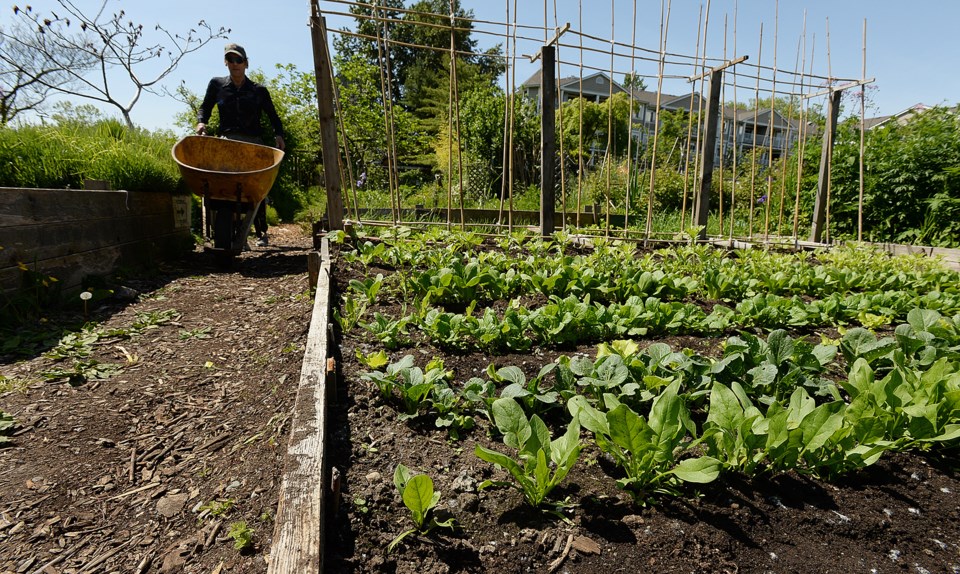Like many local food projects, Vancouver’s oldest and biggest community garden deals with theft. Its members also encounter addicts and homeless people.
But after growing produce for 25 years, Strathcona Community Gardens has a rule: no fences.
“We have a really open attitude toward the community and neighbourhood at large,” said Jody Baker, executive member at large at Strathcona Community Gardens.
Its gardeners are proud of their green oasis in the city despite what Baker calls “minor problems.”
“We clean up needles every month, but that’s par for the course,” he said.
The gardens take up more than three acres of land east of Strathcona Park in the Downtown Eastside. There are fruit trees, a bee shed, garden plots, a nursery, two artificial ponds and a herb garden. The gardens even include a wetland area for raising ducks. One acre is kept as wild space for wildlife.
Baker often finds campers in the wild space. He shrugs it off.
“We get a lot of people passing through, they sleep there for a couple of nights then they move on,” he said. “That’s just part of the neighbourhood.”
Theft occurs, admits Baker.
“One time we had someone come through and cut every flower in the garden, load it up on a shopping cart and sell them on the street. Another time, someone came through and cut all the pea tips.”
But the gardeners remain optimistic. The plots are separated by one another in rows by a narrow woodchip path. There are few garden boxes, unlike most community gardens.
The city owns the land but Strathcona Community Gardens manages the area. “We manage it as if it were a public park, so we encourage the public to visit,” Baker explained.
Baker believes the location in the Downtown Eastside has little to do with the thefts. “Theft is just a ubiquitous problem that happens,” he said.
Theft from community gardens was highlighted last week by a CBC story about community gardens in Richmond, where a non-profit that runs the city’s gardens started a research project to understand different cultural perspectives.
The project hopes to stop people stealing from the gardens.
Communication across cultures is something that gardeners in Strathcona have done for decades. According to Baker, some members of Strathcona Community Gardens do not speak English and at least half of them are non-native English speakers. To help with communication, signs are posted in English, Spanish, and Chinese.
One longtime Strathcona resident, known by all simply as “Mrs. Yee,” has grown squash, garlic, and snow peas at Strathcona Community Gardens for 23 years. She doesn’t speak English and her old age showed as she carefully walked around the plants in her plot. She knelt and cut a handful of chives from the ground. Motioning to the surrounding land, she said it used to be barren — just piles of dirt on both sides.
“In the summer, theft can happen on any night,” said Yee in Chinese. “One time they took all of my zucchinis.”
The thefts don’t seem to bother her. “I don’t know who does the stealing,” she said. She shrugged and then smiled proudly as she showed the chives in her hand.
Overall, Baker says the community tries to take a positive outlook on the garden. “Our motto is a nibble here and there is fine, but please don’t steal,” he said.
His advice for deterring thieves is simple: “Put the brussels sprouts at the front. Put the tomatoes in the back.”



